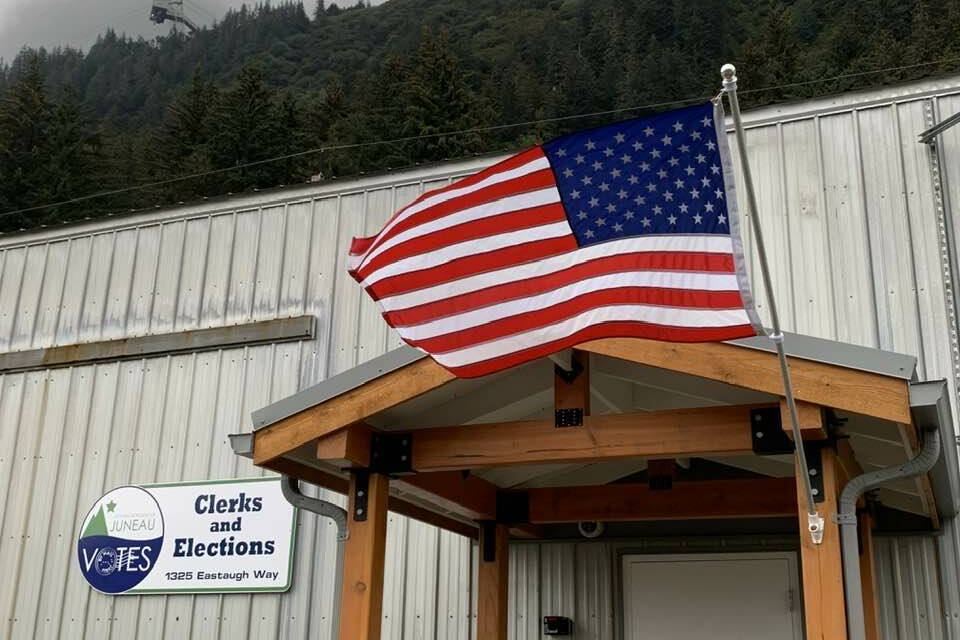The city clerk’s office transmitted its final report on the 2023 municipal election for review during the Assembly’s reorganizational meeting on Oct. 23.
The report contains some interesting statistics that bear on simmering dissatisfaction with the Assembly’s autocratic decision to permanently impose vote-by-mail (VBM) in Juneau.
VBM was implemented because it would supposedly be more convenient, guarantee that every vote is counted and increase voter turnout.
According to city officials, the voters in this election who actually used the U.S. Post Office to deliver their ballot were in the minority. Apparently most voters chose to drop off their ballots at one of the two voting centers or at one of the available two drop boxes in the city. With the limited number of options available this doesn’t make voting more convenient than traditional voting in your neighborhood precinct.
Apparently VBM does not guarantee that every vote is counted either. The report listed 168 ballots that were rejected for various reasons, including invalid registration, ballots not cured for signature or voter verification anomalies, and invalid or missing postmarks. With the exception of a handful of rejections due to invalid voter registration, those ballots would have been counted if the voters had cast their ballots conventionally at a precinct location where a helpful poll worker would have verified the voter’s identity and caught any mistakes.
Another telling statistic is the continuing absence of any significant increase in voter turnout despite the fact that 26,425 unsolicited ballots were mailed to Juneau voters for this election. Barely a third were returned. Even more aggravating, after subtracting the 1,636 ballot packets that were returned to the city for incorrect addresses and deceased voters, over 15,000 unused ballot packets were needlessly added to the Juneau Landfill.
This is an unwarranted waste of money and sends a message that undercuts the importance of voting in our democracy.
Since VBM was instituted, the number of registered voters in Juneau has remained almost unchanged, varying by no more than 100 voters from year to year. In the 2023 election, where 27,767 voters were registered, just 9,435 ballots were received and accepted registering a 33.89% turnout, an approximate 1% increase from the previous year.
However, the real comparison that needs to be made should be between years when VBM was used and when conventional elections were offered. Ignoring 2020, the first year of VBM when it was a novelty, the three-year average (2021-2023) of VBM turnout was 32.5% vs the three-year average turnout prior to VBM (2017-2019) of 31.7%, an increase of only 0.8%. The number of average ballots voted and accepted over the same time periods was 9,029 vs 8,407 respectively, an increase of only 622 votes.
Does it make good financial sense to spend an exorbitant amount of tax money and limit voting choice on an election system that has only increased voter turnout by less than 1%, and added a paltry number to vote totals?
Our city leaders have authorized this ongoing expenditure of hundreds of thousands of dollars every year to perpetuate a voting system that has failed to meet any of its purported goals. I previously suggested that Assembly members could consider an alternative, one that would lower costs, reduce the number of rejected ballots and offer more choice to Juneau voters. The proposed hybrid system, one that is being used by other states, allows vote-by-mail, if the voter chooses, but also preserves the option for those who wish to personally insert their anonymous ballot into the vote-counting machine.
Our new Assembly has an opportunity to take this up at their scheduled retreat in December and direct the city manager to conduct a thorough and transparent evaluation of VBM, with a comparison analysis to past elections, including the additional costs associated with VBM.
The public was never consulted on whether VBM should be made permanent. Voters deserve to know how much tax money is being spent on an election system that has little real benefit and unnecessarily rejected the ballots of over 160 voters.
• After retiring as the senior vice president in charge of business banking for KeyBank in Alaska, Win Gruening became a regular Opinion Page columnist for the Juneau Empire. He was born and raised in Juneau and graduated from the U.S. Air Force Academy in 1970. He is involved in various local and statewide organizations. Columns, My Turns and Letters to the Editor represent the view of the author, not the view of the Juneau Empire. Have something to say? Here’s how to submit a My Turn or letter.

